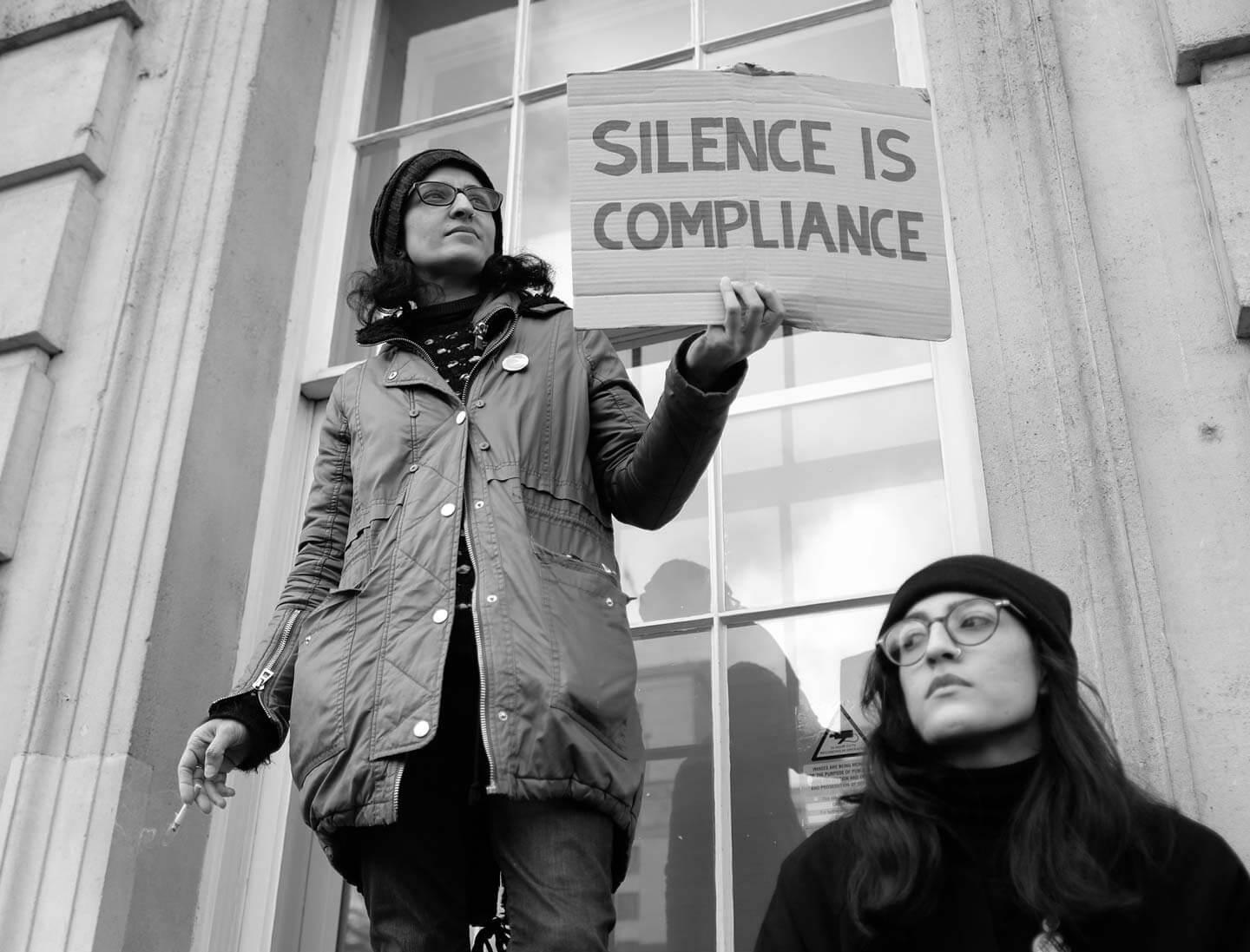WOOLF AT THE DOOR
by Dana Sinopoli. Photo by Alisdare Hickson
I am sitting in my office, thinking about rooms.
Writing for Room has prompted this state of reverie, during which one of my favorite works, A Room of One’s Own, passes through my mind. In her essay, Virginia Woolf writes of the necessity for women to have money and a room of their own in order to write fiction. What is most salient for me about Woolf’s piece at this moment, as I think about the thousands of children who remain locked in immigration detention centers, is not her actual argument but the title — what it means for one to have a room that is safe and secure and familiar.
Inside my consulting room, I have the privilege of existing in this state of uninterrupted thinking. I have a door and am in control over who comes and goes and when I do the same. I am sitting in a chair that is comfortable; I can sit quietly to think and write. I have windows to look out of and that let the sun in, and I imagine Virginia Woolf would argue that it is largely because of all of these things that I am free to engage in this uninterrupted thinking.
It is no easy task to think about what space we, as psychoanalytic psychologists, occupy in the fight against this policy of inhumanity and trauma. And certainly each of us will feel differently about the room we permit this to take up in our minds, not to mention how we are reconciling or dissociating the reality that — regardless of who has control of the House or who is elected in 2020 or the outcome of the Mueller investigation — the impact of the rooms these children are kept in will outlast administration changes in the rooms of the White House. The reality we know is that the rooms in which these children are kept will affect their internal worlds and their interactions with the world around them.
Woolf’s recognition that the freedom of our minds is interwoven with the rooms we occupy and the spaces we are permitted, or not permitted, into seems particularly salient as thousands of human beings, children no less, are intentionally and knowingly left in junk rooms with no guarantee of safety or comfort or basic human rights. And on December 18, 2018, US Customs and Border Protection stated that “the processing system has hit capacity.” Essentially, there is no more room in our country for asylum seekers.
As of December 2018, almost 15,000 children remain in detention centers. Of the more than 2,600 babies and children who were separated from their parents due to the zero-tolerance policy, 140 (who we know of) are still not reunited. One hundred and seventeen of these 140 separated children have parents who have already been deported, while they themselves remain detained. The shelter in Tornillo, Texas, still holds 1,500 children with 59 days the average length of their stay. It has been expanded from its original capacity of 450 to now being able to hold 3,800 children ages thirteen to seventeen.
Toward the end of her essay, Woolf observes, “All these infinitely obscure lives remain to be recorded.” Which reminds me of all the children whose names we won’t know and stories we won’t hear. And it is impossible to separate the physical spaces these children are kept in from the message that there is no room in this country for people like them. I am calling on us to continue sounding the alarm regarding the reality of these children’s lives and to hold them in mind with as much room as we can. ■
-
Dana Sinopoli, PsyD, is a clinical psychologist and psychoanalytic candidate in private practice in Philadelphia. She has been an outspoken critic of the current administration. She authored a letter in response to the zero- tolerance policy which, on behalf of the mental health community, was signed by over 21,000 people and 200 organizations and was delivered to the highest officials in all three branches of the US government.
-
Email: dlsinopoli@gmail.com
ROOM is entirely dependent upon reader support. Please consider helping ROOM today with a tax-deductible donation. Any amount is deeply appreciated. |






